Regan Walker's Blog: Regan's Author Blog, page 9
April 13, 2018
Best Bodice Rippers!
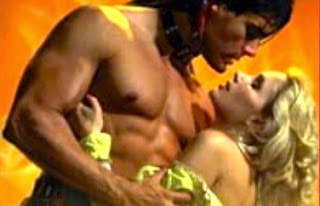 Of all my "best lists", this is the longest. I think you will realize why when you see how many classics are on it (it's Classics month on Historical Romance Review). Many of these are books you have long treasured. Some are keepers.
Of all my "best lists", this is the longest. I think you will realize why when you see how many classics are on it (it's Classics month on Historical Romance Review). Many of these are books you have long treasured. Some are keepers.If you like stories that feature an alpha male hero who begins demanding his way, but falls at the heroine’s feet in the end to beg forgiveness and confess his love, you’ll find them HERE.
Published on April 13, 2018 15:07
April 3, 2018
Best Irish Historical Romances!
 I first developed this list for a friend of Irish descent who loves Irish historical romances. Since then, I have updated this list each year as I have come to love stories that feature Ireland and/or Irish heroes and heroines. The books on this list cover all time periods. Some transcend typical historical romance as they bring to life heartrending tales of the wonderful Irish people who survived much hardship to help make great their adoptive countries.
I first developed this list for a friend of Irish descent who loves Irish historical romances. Since then, I have updated this list each year as I have come to love stories that feature Ireland and/or Irish heroes and heroines. The books on this list cover all time periods. Some transcend typical historical romance as they bring to life heartrending tales of the wonderful Irish people who survived much hardship to help make great their adoptive countries.If you’re looking for stories of the Emerald Isle or handsome Irish hunks, or worthy Irish heroines, you will find them HERE.
Published on April 03, 2018 17:27
March 15, 2018
Daniel O'Connell... the Liberator of Ireland
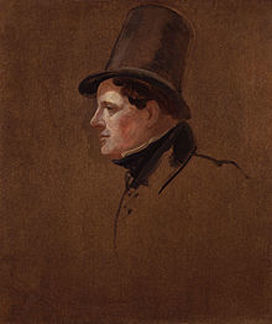 The issue of emancipation for Catholics consumed England for many decades, beginning in the 18th century and continuing until the Catholic Emancipation Act in 1829. Prior to that, Catholics could not, among other things, hold public office or serve in Parliament.
The issue of emancipation for Catholics consumed England for many decades, beginning in the 18th century and continuing until the Catholic Emancipation Act in 1829. Prior to that, Catholics could not, among other things, hold public office or serve in Parliament.Daniel O’Connell, who in the 1810s and 1820s was one of the leading barristers in Ireland, led the campaign for emancipation, earning him the title “The Liberator.”
This bit of Ireland's history was the inspiration for my story, The Shamrock & The Rose... a perfect one to read for St. Patrick's Day. SEE MORE
Published on March 15, 2018 09:01
February 25, 2018
Best Pirate, Privateer and High Seas Romances!
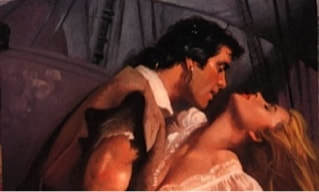 Who doesn’t love a good pirate or privateer story? All that capturing, swashbuckling and romancing on the high seas—oh yes! Gets my blood boiling just thinking about it. On my blog, Historical Romance Review, I have a list of those I have rated 4 or 5 stars. Some do not have pirates as such, but may have a swashbuckling sea captain or a privateer. In almost every case, part of the story takes place on the high seas. See it HERE.
Who doesn’t love a good pirate or privateer story? All that capturing, swashbuckling and romancing on the high seas—oh yes! Gets my blood boiling just thinking about it. On my blog, Historical Romance Review, I have a list of those I have rated 4 or 5 stars. Some do not have pirates as such, but may have a swashbuckling sea captain or a privateer. In almost every case, part of the story takes place on the high seas. See it HERE.
Published on February 25, 2018 09:52
February 14, 2018
A Short History of Valentines
 Though St. Valentine’s Day has been celebrated for a very long time, the Valentine’s Day cards we send today, and their romantic precursors with pictures, real lace and ribbons, didn’t really come into fashion until the mid 19th century with the Victorian era. However, that didn’t mean that lovers in earlier eras didn’t observe the day. Of course, they did. See more.
Though St. Valentine’s Day has been celebrated for a very long time, the Valentine’s Day cards we send today, and their romantic precursors with pictures, real lace and ribbons, didn’t really come into fashion until the mid 19th century with the Victorian era. However, that didn’t mean that lovers in earlier eras didn’t observe the day. Of course, they did. See more.
Published on February 14, 2018 06:38
January 27, 2018
"Making Love" in Georgian and Victorian novels
 Research on this issue was the project of Dr. Clelia Duel Mosher, a hygiene academic who, between 1892 and 1920, persuaded 45 women to fill out questionnaires on their experiences of sex, marriage and contraception.
Research on this issue was the project of Dr. Clelia Duel Mosher, a hygiene academic who, between 1892 and 1920, persuaded 45 women to fill out questionnaires on their experiences of sex, marriage and contraception.Not surprisingly, the results show that most women knew little about sex before marriage with some admitting they only picked up the facts of life by observing the habits of farm animals. But once married, most women said that their sex lives were active and they enjoyed the “habitual bodily expression of love”.
As Fraser Sutherland notes in his essay Why Making Love Isn’t What It Used to Be, where he examines the writing of Victorian men of letters, the term “make love” has undergone change over the last several centuries. Early on, the phrase referred to both wooing and sexual intercourse.
The Oxford English Dictionary lists the first date for the term “to make love” as 1567, citing Certaine Tragicall Discourses of Bandello with many Georgian and Victorian uses listed as well:
1768, L. Sterne Sentimental Journey “You have been making love to me all this while.”
1784, R. Bage Barham Downs “You..may make love, and play your pitty patties.”
1829, W. Cobbett Advice to Young Men “It is an old saying, ‘Praise the child, and you make love to the mother’.”
1845, T. Hood Poems (1846) “Oh there's nothing in life like making love.”
Thus, the term’s euphemistic usage was firmly entrenched by the early seventeenth century, and remained so into the early twentieth century.
Published on January 27, 2018 08:47
January 5, 2018
It's Twelfth Night!
 From The Twelfth Night Wager:
From The Twelfth Night Wager:It was a dull day at White’s the day he agreed to the wager: seduce, bed and walk away from the lovely Lady Leisterfield, all by Twelfth Night. But this holiday season, Christopher St. Ives, Viscount Eustace, planned to give himself a gift.
While doing my research for the story, I enjoyed vicariously living through the Autumn season in Regency England and Christmastide which ends in Twelfth Night, January 5th. Twelfth Night has its origins in ancient Rome and was a mid-winter event observing pagan fertility rites, a festival of feasting and public celebration. At some point, this tradition became incorporated into the Christian celebrations and included feasting, drinking, games, plays, dances and masked balls. See MORE.
Published on January 05, 2018 07:24
December 23, 2017
Favorite Heroes & Heroines... the new list!
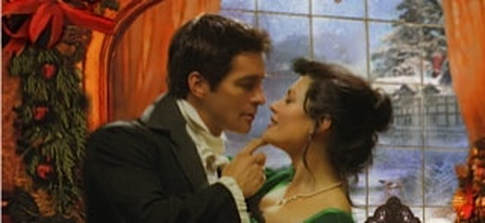 It’s that time of year when I share my favorite heroes and heroines. I have read and reviewed nearly 1000 romances, most historical, and in those novels that I have rated 5-stars there are some wonderful heroes and heroines. Noble men who overcome tortured pasts, flaws and the odds against them to pursue love and heroines who persist against great obstacles to be with the man to whom they would give their heart—strong, intelligent women of character. Every one a worthy hero and heroine.
It’s that time of year when I share my favorite heroes and heroines. I have read and reviewed nearly 1000 romances, most historical, and in those novels that I have rated 5-stars there are some wonderful heroes and heroines. Noble men who overcome tortured pasts, flaws and the odds against them to pursue love and heroines who persist against great obstacles to be with the man to whom they would give their heart—strong, intelligent women of character. Every one a worthy hero and heroine.See the list HERE. It's my Christmas gift to you.
Published on December 23, 2017 06:46
December 21, 2017
Christmas Regency Style!
 Christmas in Regency England, 1811-1820, the time when Prince George ruled as in his father’s place, was a more subtle celebration than the one we observe today. To my way of thinking, perhaps they were better for it. Christmastide, as they called the season, began with Christmas Eve and continued to Twelfth Night, or January 5th, followed by the Feast of the Epiphany the next day, the official end of the Yule season. See more.
Christmas in Regency England, 1811-1820, the time when Prince George ruled as in his father’s place, was a more subtle celebration than the one we observe today. To my way of thinking, perhaps they were better for it. Christmastide, as they called the season, began with Christmas Eve and continued to Twelfth Night, or January 5th, followed by the Feast of the Epiphany the next day, the official end of the Yule season. See more.
Published on December 21, 2017 06:37
December 3, 2017
Why the Scots Didn't Celebrate Christmas...
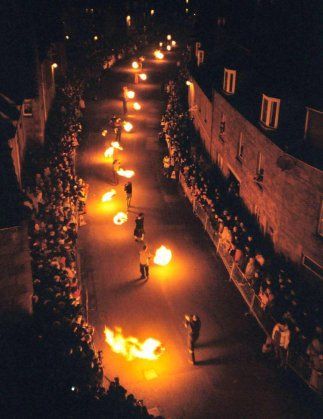 It may surprise you to know that Christmas was not celebrated as a festival in Scotland for about four hundred years. This dates back to the Protestant Reformation when the Scottish Kirk proclaimed Christmas a Catholic feast.
It may surprise you to know that Christmas was not celebrated as a festival in Scotland for about four hundred years. This dates back to the Protestant Reformation when the Scottish Kirk proclaimed Christmas a Catholic feast.While the actual prohibition, passed by Scotland’s Parliament in 1640, didn’t last long, the Church of Scotland, which is Presbyterian, discouraged Yule celebrations beginning as early as 1583 and this continued into the 1950s. Many Scots worked over Christmas and celebrated the Winter Solstice at the New Year, which celebration came to be known as Hogmanay. See MORE.
Published on December 03, 2017 07:09



